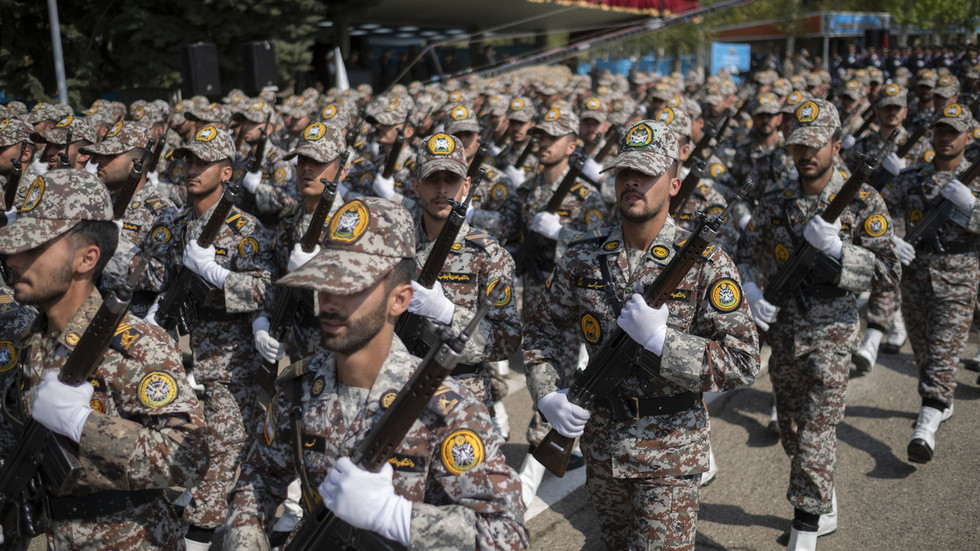In light of escalating hostilities in Syria, Iranian officials have indicated a readiness to bolster Damascus’s military efforts against jihadist forces, particularly those stemming from the al-Qaeda affiliate Hayat Tahrir al-Sham (HTS) and other Islamist groups. Iranian Foreign Minister Abbas Araghchi stated that Tehran would contemplate a complete military deployment to Syria should the Syrian government formally request it. His remarks, made during an interview with the Qatar-based outlet Al-Araby Al-Jadeed, underscore Iran’s commitment to supporting its ally amidst growing threats from militant factions, which had launched significant offensives from Idlib province toward key Syrian cities such as Aleppo, Hama, and Homs. The increase in jihadist activities poses not only a challenge to Syria but potentially destabilizes neighboring countries like Iraq, Jordan, and Türkiye, with Araghchi expressing concern about the regional implications if these groups continue to expand their reach.
Araghchi emphasized Tehran’s strategy to stabilize the situation in Syria by pursuing initiatives that can lead to a permanent resolution of the ongoing conflict. This aligns with Iran’s historical role as a supporter of the Assad regime, which has been under significant pressure since the onset of the civil war. The Iranian foreign minister suggested that Tehran is initiating efforts focused on diplomacy and consultations, particularly with Ankara, indicating a potential thaw in relations that have been strained due to conflicting interests in the region. However, he firmly asserted that any dialogue between the Iranian and Turkish leadership hinges on Turkey retracting its military presence in Syria, a condition that he categorized as “reasonable.” This position reflects Iran’s broader strategic goals in maintaining influence over Syrian affairs and countering Turkish ambitions in the region.
The deterioration of the Astana peace process, which includes collaborations between Syria, Iran, Russia, and Turkey to negotiate a peaceful resolution, concerns Iranian officials like Araghchi. The Astana framework has been one of the few remaining diplomatic avenues for addressing the Syrian crisis, and its collapse would significantly hinder prospects for stability. Araghchi’s upcoming visit to Moscow reinforces Iran’s diplomatic efforts to engage Russia, a critical ally that has consistently supported President Bashar Assad’s government. The partnership between Iran and Russia has been pivotal in enhancing military capabilities against IS and other militant groups, with Russian airstrikes complementing Syrian forces’ operations against jihadists in recent clashes.
The Turkish government’s position on the Syrian conflict reflects its own strategic interests, which include maintaining territorial integrity and supporting what it describes as legitimate opposition demands. President Recep Tayyip Erdogan has argued that achieving a sustainable end to the conflict necessitates consensus that recognizes the aspirations of the Syrian people. Consequently, Turkish officials, including Foreign Minister Hakan Fidan, have attributed the renewal of hostilities to Damascus’s perceived neglect of these demands. This dynamic adds layers of complexity to the already convoluted Syrian conflict, where various stakeholders, including regional powers and local factions, vie for influence and control.
As military operations intensify, the intertwined relationships among Iran, Turkey, and Russia illustrate the precarious balance that must be navigated to avert further escalation. Each nation’s approach is informed by its strategic imperatives, making cooperation both essential and challenging. Turkey’s military activities in northern Syria and Iran’s defense of the Assad regime signify foreign interventions that complicate prospects for peace. Additionally, the ongoing tussles over territorial claims and power dynamics stem from long-standing historical grievances, further exacerbating tensions among these nations.
In summary, the Syrian conflict represents a multifaceted crisis characterized by an array of foreign interventions, shifting alliances, and ongoing hostilities. Iran’s consideration of a military presence in Syria underscores its commitment to Shia hegemony and regional stability while signaling its close ties with the Assad regime. As jihadist groups like HTS engage in aggressive campaigns, Iran’s strategic calculus continues to evolve in response to developments on the ground. The effectiveness of the Astana process and the ability of regional powers to reconcile their interests will be critical in shaping Syria’s future, underscoring the urgent need for dialogue and cooperation among the involved nations to prevent further deterioration of the situation. The impact of these complex relationships will resonate throughout the region, influencing future security dynamics and geopolitical strategies.

